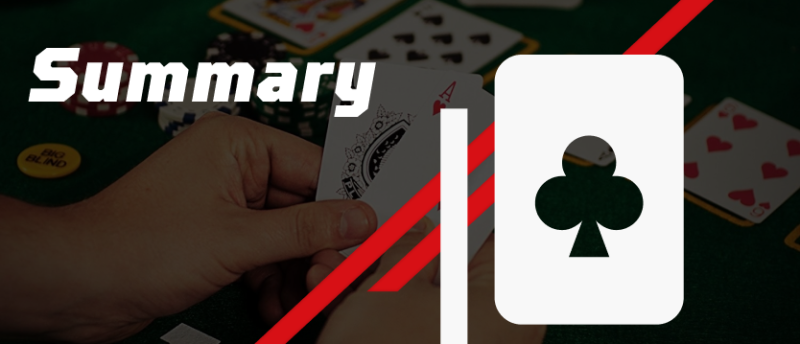Table of Contents:
Quick Tips to Improve Your Poker Playing Skills
Summary
Quick Tips to Improve Your Poker Playing Skills
Although poker is a strategic game, there is also an element of luck. This means that there is no strategy that guarantees a hundred percent victory. What's more, you won't find any training materials on the Internet that will help you learn the game instantly. Nonetheless, we've put together some top tips that will not only improve your understanding of the game, but also your win rate — check them out below:
- Look out for professionals. There's probably no point in learning to drive from someone who doesn't have a driving licence. The same is true for online poker. By analysing the starting hands of professional players and the decisions they make throughout the game, you will eventually figure out the strategies they use.
Never learn from players of or below your own skill level. To improve your gaming skills, make sure to gain knowledge from a real pro who has achieved some worthy results in poker, before you begin the learning process.
- Read poker books. There have probably never been so many guides as there are today, with electronic versions available as well. Reading books written by punters who play poker like a pro will teach you how to start playing from the very basics, learning about tournaments and cash games features, poker maths, the mental aspect and much more.
With a lot of information included, these books are not a fast way to learn the game. However, they are inexpensive and include lots of useful tips and tricks, so it can be a great investment in your knowledge.
- Hire a poker coach. Even if you're not new to poker, there may be bottlenecks in your strategy that need improvement. There's no better way to identify and fix problems than with a poker coach.
Should you bluff at straight draws? How do I calculate pot odds based on the bet size? How do you get a better poker hand in a given game situation?Your poker coach will give you the answers to any questions you may have.
- Watch games on streaming platforms. From YouTube to Twitch, there are plenty of online platforms with high-quality poker content from which you can gain useful knowledge. The more you watch pros play, the more useful information is stored in your subcortical structures. The main advantage of video content is that in most cases it is free of charge.
- Rethink your playing sessions. By studying your own poker hands and the decisions you make, you'll learn from your own mistakes. Luckily, there are many online tools today that allow you to record and track your play. Once a poker session is completed, you can review all your hands and see if there are any flaws.
Pay special attention to hands that you lose big on, as these are the ones that contain the most mistakes. With good hand-tracking software, you should also be able to analyse the actions of your opponents in order to create an effective strategy for beating them. Don't neglect useful online poker tools, as they allow you to gain a competitive edge.
- Learn tips and tricks from blogs. There are several good poker blogs where professionals share their knowledge with readers and followers. Unlike books, poker blogs are regularly updated with new posts featuring tips and tricks, and that is their key advantage.
- Put your poker hand out there for all to see. There are huge poker communities on the Internet with forums discussing various aspects of the game and specific poker sessions. While not all of the advice you get will come from real professionals, you'll be able to read a variety of viewpoints.
- Make your playing schedule and stick to it. Whether you can spare only 30 minutes or 8 hours each day, you need to play every day to stay in shape and learn by trial and error. Keep in mind that improving your poker skills is painstaking work, requiring as much involvement as possible.
First, you might only play free poker games (Texas Hold Em and other variants) to eliminate the risk of losing money before you gain enough knowledge to move to a real poker table.
Besides, the mental component plays an important role in poker, especially today, when the game is highly competitive and exhausting. A healthy diet, a good night's sleep and exercise is what every successful poker player needs to build a winning hand. In addition, don't abuse alcohol and substances that cloud your mind when you sit down at the real poker table.





